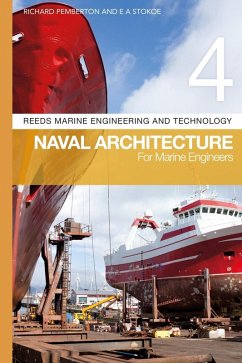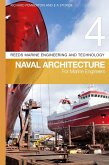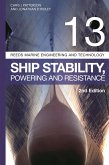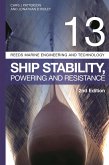This textbook covers the theoretical, fundamental aspects of naval architecture for students preparing for the Class 2 and Class 1 Marine Engineer Officer exams. It introduces the basic foundation themes within naval architecture, (hydrostatics, stability, resistance and powering), using worked examples to show how solutions should be presented for an exam. The topics are ordered in a manner of a typical taught module, to aid the use of the book by lecturers as a compliment to a course.
Importantly, this updated edition contains updated text and figures in line with modern practice, including an update of many of the figures to three-dimensional diagrams, and a new section on computer software for naval architecture. The book also includes sample examination questions with worked examples answers to aid students in their learning.
Importantly, this updated edition contains updated text and figures in line with modern practice, including an update of many of the figures to three-dimensional diagrams, and a new section on computer software for naval architecture. The book also includes sample examination questions with worked examples answers to aid students in their learning.









